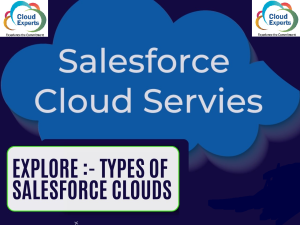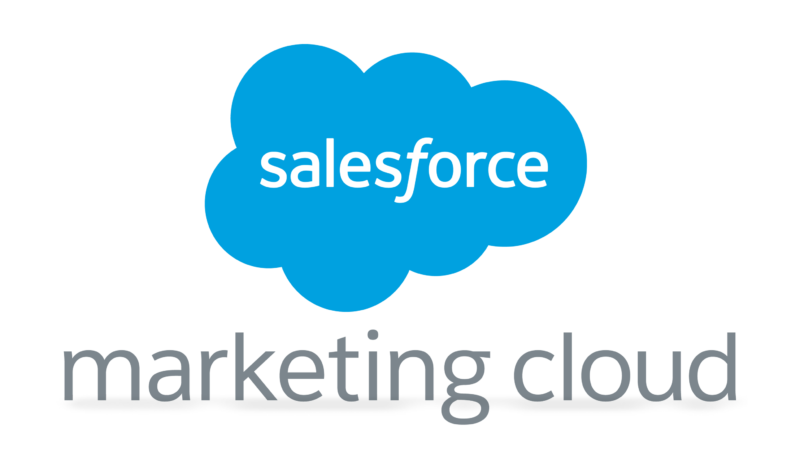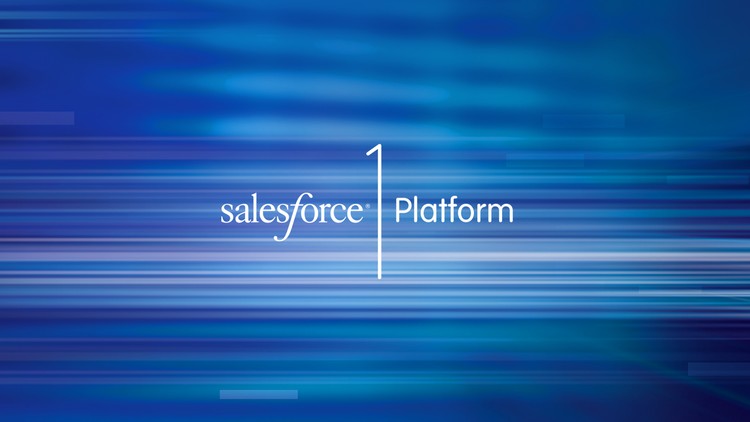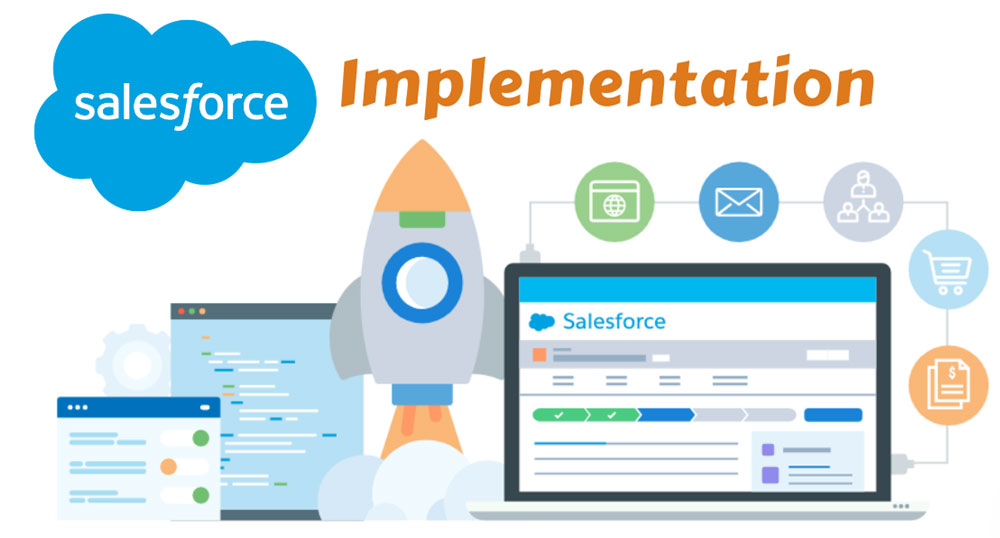Major 6 Reasons Why Salesforce Is In So Much Demand These Days

Introduction
We have witnessed that Salesforce is in demand and got popularity in recent years, pursuing it the go-to decision for organizations looking for solid and exhaustive Customer Relationship Management (CRM) software. This article will explore the reasons for the rising interest in Salesforce and the elements that add to its boundless reception in the business world.
1. Robust Feature Set
One of the main reasons behind Salesforce’s appeal is its broad and strong list of capabilities. Salesforce offers an exhaustive set-up of CRM functionalities, including contact management, opportunity tracking, sales forecasting, customer service management, marketing automation, analytics, and more. This strong list of capabilities empowers businesses to effectively manage their customer relationships, streamline operations, and drive revenue growth, all within a single platform.
2. Scalability and Flexibility
Salesforce’s scalability and flexibility are key factors that attract businesses of all sizes. Whether a small startup or a large enterprise, organizations can tailor Salesforce to their specific needs and scale it as their business grows. The platform allows for easy customization and configuration, enabling businesses to adapt Salesforce to their unique processes and workflows. This scalability and flexibility make Salesforce an ideal choice for businesses with varying requirements and future growth aspirations.
3. Cloud-Based Architecture
Salesforce’s cloud-based architecture is another significant factor contributing to its demand. As businesses increasingly embrace cloud technology, Salesforce offers a secure and reliable cloud-based CRM solution that eliminates the need for on-premises infrastructure and maintenance. With cloud accessibility, businesses can access their CRM data anytime, anywhere, and from any device, enabling remote work, collaboration, and real-time insights. The cloud-based approach also ensures automatic updates and seamless scalability without disruptions.
4. Ease of Use and User-Friendly Interface
Salesforce’s user-friendly interface and intuitive design make it appealing to users across various roles and skill levels. The platform is built with a focus on user experience, making it easy to navigate, configure, and adopt. Salesforce provides a clean and organized interface, making it simple for users to access and manage customer data, track activities, and perform tasks efficiently. The ease of use reduces the learning curve, encourages user adoption, and enhances productivity.
5. Continuous Innovation and Upgrades
Salesforce’s commitment to continuous innovation keeps it at the forefront of the CRM market. The company consistently introduces new features, enhancements, and upgrades to its platform, driven by customer feedback, market trends, and emerging technologies. Salesforce invests heavily in research and development, ensuring that its CRM solution remains relevant and cutting-edge. This focus on innovation enables businesses to stay competitive, leverage the latest advancements, and meet evolving customer expectations.
6. Strong Community and Support
Salesforce boasts a strong and vibrant community of users, developers, and partners who contribute to its popularity. The Salesforce community offers a wealth of resources, including forums, documentation, training materials, and user groups, fostering collaboration, knowledge sharing, and problem-solving. Additionally, Salesforce provides excellent customer support, ensuring that businesses receive assistance whenever needed, whether it’s technical support, training, or guidance on best practices.
Conclusion
The increasing demand for Salesforce can be attributed to its robust feature set, scalability and flexibility, cloud-based architecture, user-friendly interface, continuous innovation, and strong community support. As businesses recognize the importance of effective customer relationship management, Salesforce stands out as a trusted and comprehensive CRM solution provider. By offering a powerful platform that
To Know More Click Here…
- Recent Posts
- Could you provide a description of an erection pump
- There are five primary reasons for the development of heart failure
- Does erectile dysfunction hinder the ability to masturbate
- Top 14 Features Of IT Asset Management
- 3 Ways to Optimize Procurement
- Importance Of 3 Way Matching In Purchasing
- What is Indirect Procurement? – 5 Things You Need To Know
- RFI Vs RFP Vs RFQ
- 5 Reasons Why eAuctions Drive Is Better Savings
- Category Management in Procurement – 7 Important Steps Need to Know About It
Could you provide a description of an erection pump
Could you provide a description of an erection pump?Learn more about men’s health and the use of erection pumps by visiting this informative website: ahealthyman.com.
There are five primary reasons for the development of heart failure
There are five primary reasons for the development of heart failure. the healthy man blog to learn more about the main causes of impotence and
Does erectile dysfunction hinder the ability to masturbate
Does erectile dysfunction hinder the ability to masturbate? Certainly! Here’s a phrase that describes the main point of the article: “Discover the truth about erectile

Top 14 Features Of IT Asset Management
IT Asset Management IT Asset Management – What Is It? IT Asset Management (ITAM) is a way to keep track of all your IT stuff,

3 Ways to Optimize Procurement
Top 3 Ways to Optimize Procurement A study by Riskmethods found that 79% of companies experienced supply chain disruptions, resulting in a loss of 4%

Importance Of 3 Way Matching In Purchasing
Why is 3-Way Matching is Important in Purchasing? 3-way matching is an important process in purchasing to ensure accuracy, completeness, and compliance of invoices with

What is Indirect Procurement? – 5 Things You Need To Know
What is Indirect Procurement? 5 ThingsYou Need To Know What is Indirect Procurement? I talked about it with Procurement Expert Richard Beaumont on The Supply

RFI Vs RFP Vs RFQ
RFI Vs RFP Vs RFQ In today’s business world, there are many options for enterprises looking to switch immigration providers. They consider factors like service,

5 Reasons Why eAuctions Drive Is Better Savings
5 Reasons Why eAuctions Drive Is Better Savings eAuctions are online discussions between a buyer and a group of sellers. Procurement specialists can use eAuctions

Category Management in Procurement – 7 Important Steps Need to Know About It
What is Category Management in Procurement? Category management is a way of organizing and managing similar products or services together. It helps organizations make their

17 Common Challenges in Procurement Management & Their Solutions
17 common challenges in procurement management and their solutions Procurement can be complicated and challenging to manage due to various factors such as regulations and

The Ultimate Guide to the Top 16 Procurement KPIs.
The Ultimate Guide to the Top 16 Procurement KPIs. Nowadays, businesses want procurement teams to do more than just save money. They want them to

ProVen Revolutionary Procurement Software
ProVen Revolutionary Procurement Software Revolutionary Procurement Software : Revolutionary procurement software is here! It’s advanced, flexible, easy to use, affordable, highly secure, and can be

Vendor Management System (SRM) – 18 Points That Makes ProVen Next Generation Procurement Software
ProVen The Next Generation Procurement & Vendor Management Solution – SRM Procurement Challenges: The current purchase process is both inefficient and lacks transparency. Floating RFQs

Choosing Right Salesforce Partner – 4 Points You Need Analyse
4 Benefits You Need To Keep In Mind While Choosing Right Salesforce Partner Salesforce is a strong stage that can assist organizations with smoothing out

6 Reasons to Hire *Salesforce Developer* For Your Business – You Should Know About This
6 Reasons To Hire Salesforce Developer For Your Business Is it safe to say that you are here since you need to find the reason

Hiring a Salesforce Consultant – 5 Major Benefits One Should Know
5 Major Benefits of Hiring a Salesforce Consultant What is the Market Share of Salesforce? Salesforce’s worldwide portion of the overall industry and income keeps

5 Ways To Manage Ideas On Salesforce Experience Cloud
5 Ways to Effectively Manage Ideas on Salesforce Experience Cloud The thought creation process is an excursion with many exciting bends in the road. Thoughts

5 Salesforce Integrations You Must Know Transform Your Daily Business Operations
5 Salesforce Integrations That Can Transform Your Daily Business Operations If we discuss Salesforce, there are regions in which it adds to the business. From

Salesforce Marketing Cloud – 8 Ways To Maximize Your Marketing Potential
Salesforce Marketing Cloud – 8 Ways to Maximize Your Marketing Potential In the present quick-moving advanced world, organizations should stay aware of the most recent

Salesforce Sales Cloud Related 7 Key Features You Must Know
Sales Cloud Related 7 Key Features You Must Know What is Salesforce Sales Cloud? With the steadily expanding request, there is a consistent requirement for

Salesforce Data Security and Privacy – 4 Major Points You Must Aware
4 Major Points How Salesforce Ensure Data Security and Privacy? Introduction These days information security and privacy is the main pressing issue for everybody and

Salesforce Implementation Can Improve Your Sales Process – 6 Major Insights You Should Consider
6 Major Insights How Salesforce Implementation Can Improve Your Sales Process? Introduction Throughout the long term, Salesforce has been thought of as one of the

10 Leading CRM Software That Will Rule in 2023
10 Leading CRM Software That Will Rule In 2023 Introduction Customer relationship management software is the core of any developing business these days as all

The 15 Types Of Clouds In Salesforce & Their Features
The 15 Types Of Clouds In Salesforce & Their Features Introduction Salesforce, as a comprehensive Customer Relationship Management (CRM) platform, offers a wide range of

5 Factors – Why Salesforce Is The Best And Desired CRM Solution?
5 Factors – Why Salesforce Is The Best And Desired CRM Solution? Introduction Salesforce has earned a reputation as one of the leading Customer Relationship

Salesforce Is In Demand These Days – 6 Reasons Why
Major 6 Reasons Why Salesforce Is In So Much Demand These Days Introduction We have witnessed that Salesforce is in demand and got popularity in

6 reasons why Salesforce used AI in its CRM offerings.
6 reasons why Salesforce used AI in its CRM offerings. Introduction Salesforce, the market leader in Customer Relationship Management (CRM), has harnessed the power of Artificial Intelligence

Major 6 Future Outlook For Salesforce In The CRM Market?
Major 6 Future Outlook For Salesforce In The CRM Market? Introduction Salesforce has established itself as the dominant force in the Customer Relationship Management (CRM)

Top 6 Benefits Customer Will Get From The Salesforce AppExchange
Top 6 Benefits Customer Will Get From The Salesforce AppExchange Introduction Salesforce’s AppExchange is an extensive marketplace of applications and integrations that provides customers with

Major 6 Industries are benefited the most from Salesforce’s CRM Solutions
Major 6 Industries are benefited the most from Salesforce’s CRM Solutions Introduction Salesforce’s Customer Relationship Management (CRM) solutions have proven to be valuable across a

6 Reasons Set Salesforce Apart From Other CRMs
6 Reasons Set Salesforce Apart From Other CRMs Introduction In a crowded market of Customer Relationship Management (CRM) providers, Salesforce has managed to carve out

Top 5 Reasons for Salesforce’s Market Leadership
Top 5 Reasons for Salesforce’s Market Leadership Market Share Of Salesforce Introduction Salesforce has emerged as the market leader in Customer Relationship Management (CRM), revolutionizing

Top 5 Reasons and The Journey Of Salesforce For Becoming The No 1 CRM
Top 5 Reasons and The Journey Of Salesforce For Becoming The No 1 CRM Introduction In the highly competitive world of Customer Relationship Management (CRM),

How Is The Future On Salesforce?
How Is The Future On Salesforce? Introduction : In today’s fast-paced digital landscape, businesses are constantly striving to stay ahead of the competition and maximize

19 Major Benefits Of Using “Salesforce CRM”
19 Major Benefits Of Using Salesforce CRM? Introduction: In today’s highly competitive business landscape, maintaining strong customer relationships is crucial for success. That’s where Salesforce,

What Exactly Does Salesforce Do?
What Exactly Does Salesforce Do? Introduction : Salesforce is a leading Customer Relationship Management (CRM) platform that offers a wide range of cloud-based services to
Epic Match: MI vs. SRH – T20 Titans’ War in the IPL 2023
Epic Match: MI vs. SRH – T20 Titans’ War in the IPL 2023 In the T20 Indian Premier League (IPL), the Mumbai Indians (MI) and

6 Ways CRM Can Help You To Grow Your Business
6 Ways CRM Helps You Grow Your Business Customer Relationship Management (CRM) software can play a crucial role in helping businesses grow and thrive. Here are
























